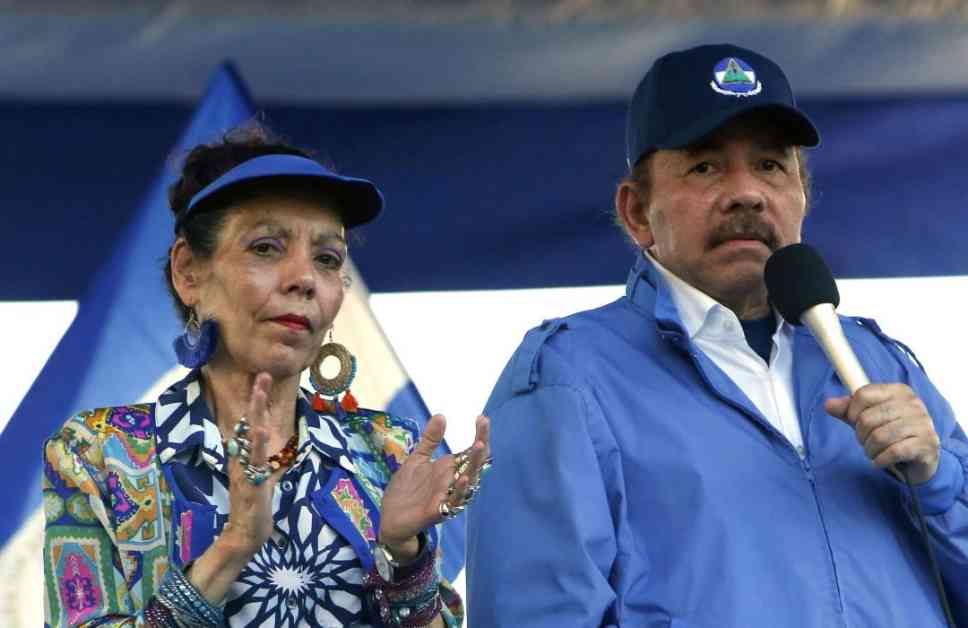Nicaragua’s President Daniel Ortega made a bold move by proposing a constitutional reform to officially appoint himself and his wife, Rosario Murillo, as co-presidents of the country. The proposal, which also includes extending the presidential term to six years, is expected to be approved by the Sandinista-controlled congress and government institutions. Additionally, Ortega introduced a bill to prohibit the enforcement of sanctions from foreign bodies within Nicaraguan territory.
This proposal comes in the midst of a government crackdown following violent repression of mass protests in 2018. The Ortega administration has imprisoned, exiled, and stripped hundreds of Nicaraguans of their citizenship and possessions, leading to the closure of over 5,000 organizations and forcing thousands to flee the country. Opposition groups, such as the Nicaraguan University Alliance, have criticized the measures as further suppressing dissent and undermining democracy.
Critics view Ortega’s proposals as a means to consolidate power and ensure a succession plan for his family. Manuel Orozco from the Inter-American Dialogue described the reforms as a way to formalize the administration’s grip on power and perpetuate their rule. The move has sparked concerns about nepotism, repression, and the erosion of democratic principles in Nicaragua.
The international community has also expressed alarm over Ortega’s actions, with human rights organizations condemning the crackdown on dissent and the consolidation of power within the ruling party. The proposed constitutional reform is seen as a strategic move by the Ortega-Murillo regime to maintain control and suppress opposition voices.
As Nicaragua faces escalating political tensions and human rights violations, the future of democracy in the country remains uncertain. The Ortega government’s efforts to solidify its grip on power through constitutional changes raise concerns about the erosion of democratic norms and the rule of law. The international community must closely monitor the situation in Nicaragua and hold the government accountable for its actions to safeguard the rights and freedoms of the Nicaraguan people.

